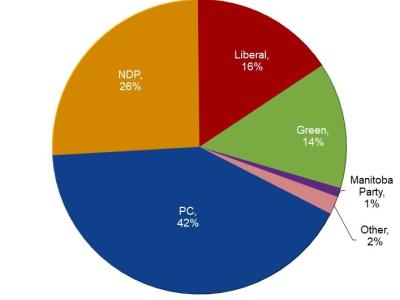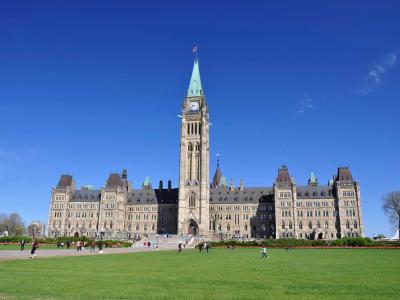A Probe Research survey conducted for the Winnipeg Free Press finds that Manitobans hold sharply divided views about the legitimacy of different forms of protest, including Indigenous-led blockades of major transportation links.
Nearly Six-In-Ten Support Using Force To Remove Blockades
More than one-half of Manitobans (57%) agree police should be empowered to use any amount of legal force necessary to remove blockades. Further to this, four-in-ten (42%) feel it is acceptable for members of the public to step in and remove blockades if they see them taking shape.
At the same time, though, slightly more than one-half of Manitobans (55%) feel the nationwide demonstrations against the construction of a natural gas pipeline through the traditional territory of the Wut’suwet’en Nation in B.C. earlier this year made them more aware of First Nations’ concerns regarding resource development on their traditional lands.
Rural Manitobans, men and those with lower levels of formal education are more likely to be in favour of strong police and even citizen action when it comes to dealing with blockades. There is also a sharp partisan split - provincial Progressive Conservative (PC) supporters are twice as likely as New Democrats and Liberals to be in favour of having blockades removed.
Majority Only Accepting Of Protests Outside Legislatures
In general, nearly all Manitobans (87%) accept that it is legitimate to protest outside the provincial legislature. Only four-in-ten (40%) say it is acceptable to blockade a road or rail line for more a few hours to make a point, with this figure dropping to one-quarter (26%) if this blockade lasts indefinitely.
Three-in-ten, meanwhile, believe it is acceptable to picket outside a politician’s home (which happened to B.C. Premier John Horgan during the Wet’suwet’en crisis) and only one-in-ten believe it is acceptable to spray paint a message on a public building or object (which happened at the Canadian Museum for Human Rights and the memorial to fallen RCMP officers in Winnipeg during this period).
Majority of Manitobans Back An Anti-Blockade Bill
More than six-in-ten Manitobans (63%) would support the provincial government introducing an “anti-blockade” bill similar to one recently introduced in Alberta that would fine those who interfere with “critical infrastructure” such as highways, railways, pipelines and utilities. Support for this bill is highest among the same demographic groups who believe that police should use force to end blockades: rural Manitobans, older citizens, men and PC supporters.
About the Probe Research Omnibus
For more than two decades, Probe Research Inc. has undertaken quarterly omnibus surveys of random and representative samples of Manitoba adults. These scientific telephone surveys have provided strategic and proprietary insights to hundreds of public, private and not-for-profit clients on a range of social, cultural and public policy topics. The Probe Research Omnibus Survey is the province’s largest and most trusted general population survey.
Disclosure Statement
Probe Research is a member of the Canadian Research Insights Council (CRIC) and confirms that this research fully complies with all CRIC Standards including the CRIC Public Opinion Research Standards and Disclosure Requirements. Learn more at: https://www.canadianresearchinsightscouncil.ca/standards/por/
Methodology
Between March 10th and 24th, 2020, Probe Research surveyed a random and representative sampling of 1,000 adults residing in Manitoba.
With a sample of 1,000, one can say with 95 percent certainty that the results are within ± 3.1 percentage points of what they would have been if the entire adult population of Manitoba had been surveyed. The margin of error is higher within each of the survey’s population sub-groups.
Modified random digit dialing, including both landline and wireless numbers, ensured all Manitoba adults had an equal opportunity to participate in this Probe Research survey. A CATI-to-web approach was employed whereby a live-voice operator randomly recruited respondents by telephone, inviting them to complete the survey via a secure online questionnaire. In addition, 265 randomly recruited Probe Research panel members were included in this general population adult sampling.
Minor statistical weighting has been applied to this sample to ensure that age and gender characteristics properly reflect known attributes of the province’s population. All data analysis was performed using SPSS statistical analysis software.




